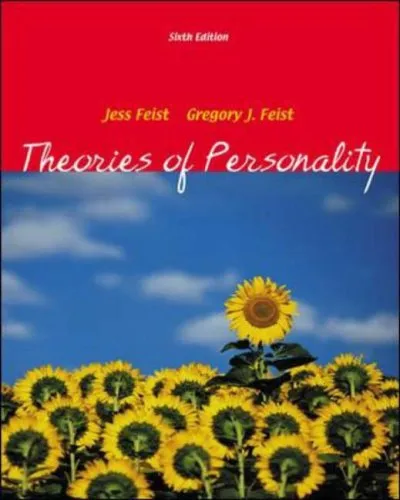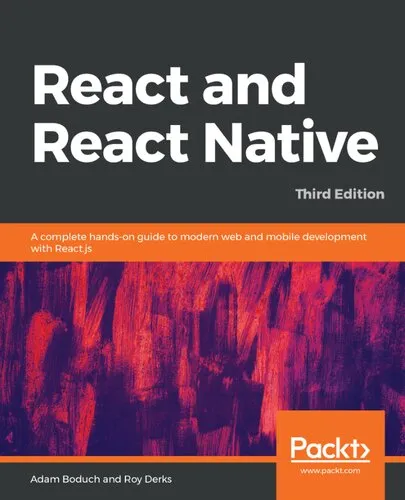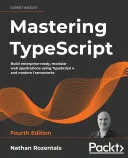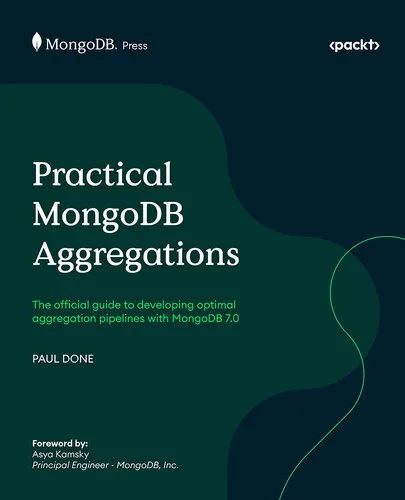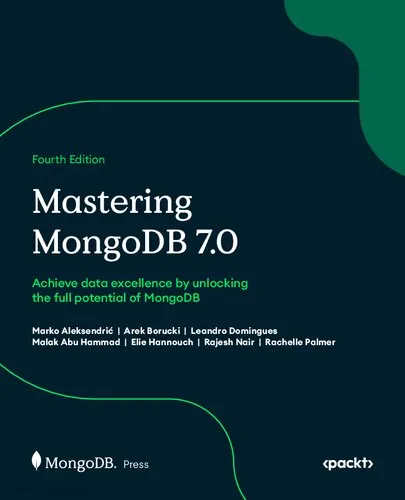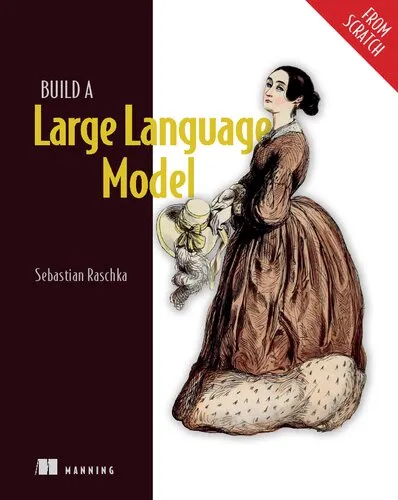Theories of Personality
4.5
بر اساس نظر کاربران

شما میتونید سوالاتتون در باره کتاب رو از هوش مصنوعیش بعد از ورود بپرسید
هر دانلود یا پرسش از هوش مصنوعی 2 امتیاز لازم دارد، برای بدست آوردن امتیاز رایگان، به صفحه ی راهنمای امتیازات سر بزنید و یک سری کار ارزشمند انجام بدینRelated Refrences:
مقدمهای بر کتاب "Theories of Personality"
کتاب Theories of Personality نوشتهی من، جس فیست، و گرگوری جی. فیست، از قابلاعتمادترین منابع مطالعات شخصیت در روانشناسی مدرن است. این کتاب با ترکیبی از علمیترین مشاهدات و عمیقترین بینشهای انسانی، خوانندگان را با جهان پر رمز و راز شخصیت انسان آشنا میکند.
خلاصهای از کتاب
در این کتاب، ما تلاش کردیم دیدگاهی جامع از نظریههای مطرح شده در روانشناسی شخصیت ارائه دهیم. از نظریههای روانکاوی Sigmund Freud گرفته تا رفتارگرایی B.F. Skinner و دیدگاههای انسانگرایانه Carl Rogers، همه به صورت مفصل بررسی شدهاند. این کتاب نه تنها به توضیح این نظریهها میپردازد، بلکه با استفاده از مطالعههای موردی و مثالهای دقیق، چگونگی عملی بودن آنها را نیز نشان میدهد. یکی دیگر از جنبههای منحصربهفرد این کتاب، تاکید بر رابطه بین شخصیت و فرهنگ است که نشان میدهد چگونه عوامل فرهنگی میتوانند بر شکلگیری شخصیت انسانی تأثیر بگذارند.
نکات کلیدی
- توضیح جامع نظریههای کلاسیک و نوین شخصیت، از جمله نظریههای روانکاوی، رفتارگرایی، شناختی، زیستی و انسانگرایانه.
- ارائه جزئیات کامل در مورد ابزارها و تکنیکهای اندازهگیری شخصیت، از جمله آزمونهای Projective و Self-report.
- بررسی کاربردهای عملی نظریههای شخصیت در زندگی روزمره، مانند مدیریت استرس، حل تعارضات و ارتقای روابط شخصی.
- بحث عمیق درباره نقش ژنتیک و محیط در تکامل شخصیت و ارتباط آن با پیشرفت روانی و اجتماعی.
نقلقولهای مشهور از کتاب
"شخصیت آینهای از گذشته و نقشهای برای آینده است؛ چیزی که ما را منحصربهفرد میکند."
"درک شخصیت، نه فقط برای فهم خودمان، بلکه برای بهبود روابط و مواجهه هوشمندانهتر با چالشهای زندگی، ضروری است."
"همانطور که محیط بر شخصیت تأثیر میگذارد، شخصیت نیز میتواند محیط خود را تغییر دهد."
چرا این کتاب اهمیت دارد؟
کتاب Theories of Personality یکی از جامعترین منابع برای دانشجویان، محققان و علاقمندان روانشناسی محسوب میشود. این کتاب به خوانندگان کمک میکند تا به درک عمیقتری از شخصیت خود و دیگران برسند. با استفاده از تحلیلهای علمی و استدلالهای منطقی، خوانندگان میتوانند مفاهیم پیچیده روانشناسی را به صورت کاربردی در زندگی شخصی و حرفهای خود پیادهسازی کنند. این کتاب همچنین ابزارهای ارزشمندی برای تفکر انتقادی درباره شخصیت انسان فراهم میکند و به خوانندگان اجازه میدهد تا نظریههای مختلف را با دیدگاهی باز بررسی کنند.
علاوه بر این، این کتاب به دلیل ساختار آموزشی و کاربردی خود، یکی از پرفروشترین منابع روانشناسی به شمار میرود و در صدها دانشگاه و کالج به عنوان کتاب درسی تدریس میشود.
Introduction to "Theories of Personality"
The study of personality has captivated humans for centuries, as we've sought to understand the nature of individuality and human behavior. "Theories of Personality," authored by Jess Feist and Gregory J. Feist, is a cornerstone resource for students, psychologists, and curious readers eager to explore the diverse approaches to understanding what makes individuals unique. This comprehensive text delves into the major theories developed by pioneers in the field, offering insights into the strengths, applications, and critiques of each model. It is designed to equip readers with not only theoretical knowledge but also practical tools for application in psychological practice, research, and everyday life.
Through its rigorous yet accessible structure, the book provides a thorough roadmap to the concepts that shape personality studies. Whether you're a student beginning your journey into psychology or a professional looking to reinforce your understanding of key theories, this book is a quintessential guide to understanding the complexities of personality.
Detailed Summary of the Book
"Theories of Personality" takes readers on a chronological journey through the development of personality psychology. It explores the foundational ideas and contributions of major theorists, including Sigmund Freud, Carl Jung, Alfred Adler, B.F. Skinner, Carl Rogers, and Abraham Maslow, among others. Each chapter begins with a brief biography of the theorist, providing context and understanding of how the life experiences of these intellectual giants shaped their ideas.
From Freud's psychoanalytic theory to Skinner's behavioral analysis, and from Maslow's hierarchy of needs to Rogers' humanistic approach, the book presents a balanced exploration of contrasting paradigms. Readers will become familiar with psychodynamic, trait, behavioral, cognitive, humanistic, and biological approaches, enabling them to appreciate how diverse methods contribute to the understanding of personality.
Additionally, the text balances theory with empirical evidence, putting the claims of each model to the test of data and application. Special attention is given to how cultural, biological, and social perspectives have influenced our understanding of personality over time. By the end of the book, readers will appreciate the interplay between different approaches and how these theories can work together to create a holistic understanding of the human psyche.
Key Takeaways
- The psychoanalytic roots of personality theory, focusing on the role of unconscious motivations and childhood experiences.
- Humanistic theories emphasizing individual growth, self-discovery, and self-actualization.
- Behavioral approaches focusing on observable actions and the impact of the environment on behavior.
- Cultural and biological influences on personality formation and expression.
- The integration of multiple theories to provide a comprehensive understanding of personality.
These key lessons not only deepen our understanding of personality psychology but also help frame practical ways to analyze human interactions in a real-world context.
Famous Quotes from the Book
"We are all creatures of our biology, but it is the environment that shapes how we express it."
"Personality is not fixed; it is a dynamic interplay of traits, experiences, and the context in which we live."
"Theories are not meant to compete but to complement one another, providing multiple lenses to understand human behavior."
Why This Book Matters
"Theories of Personality" holds an esteemed place in the field of psychology because it bridges the gap between abstract theory and empirical practice. By presenting the historical evolution of personality theories alongside modern research, it equips readers with a rounded perspective. The book is indispensable for professionals and students aiming to understand not just what personality is but how it can be studied, measured, and applied in diverse fields such as clinical psychology, organizational behavior, and education.
Furthermore, the book's emphasis on critical thinking and integration of multiple perspectives encourages readers to question, analyze, and refine their own views of personality. This intellectual rigor ensures that "Theories of Personality" remains a timeless resource, guiding generations of learners in their quest to uncover the intricacies of the human mind.
دانلود رایگان مستقیم
شما میتونید سوالاتتون در باره کتاب رو از هوش مصنوعیش بعد از ورود بپرسید
دسترسی به کتابها از طریق پلتفرمهای قانونی و کتابخانههای عمومی نه تنها از حقوق نویسندگان و ناشران حمایت میکند، بلکه به پایداری فرهنگ کتابخوانی نیز کمک میرساند. پیش از دانلود، لحظهای به بررسی این گزینهها فکر کنید.
این کتاب رو در پلتفرم های دیگه ببینید
WorldCat به شما کمک میکنه تا کتاب ها رو در کتابخانه های سراسر دنیا پیدا کنید
امتیازها، نظرات تخصصی و صحبت ها درباره کتاب را در Goodreads ببینید
کتابهای کمیاب یا دست دوم را در AbeBooks پیدا کنید و بخرید
1249
بازدید4.5
امتیاز0
نظر98%
رضایتنظرات:
4.5
بر اساس 0 نظر کاربران
Questions & Answers
Ask questions about this book or help others by answering
No questions yet. Be the first to ask!
